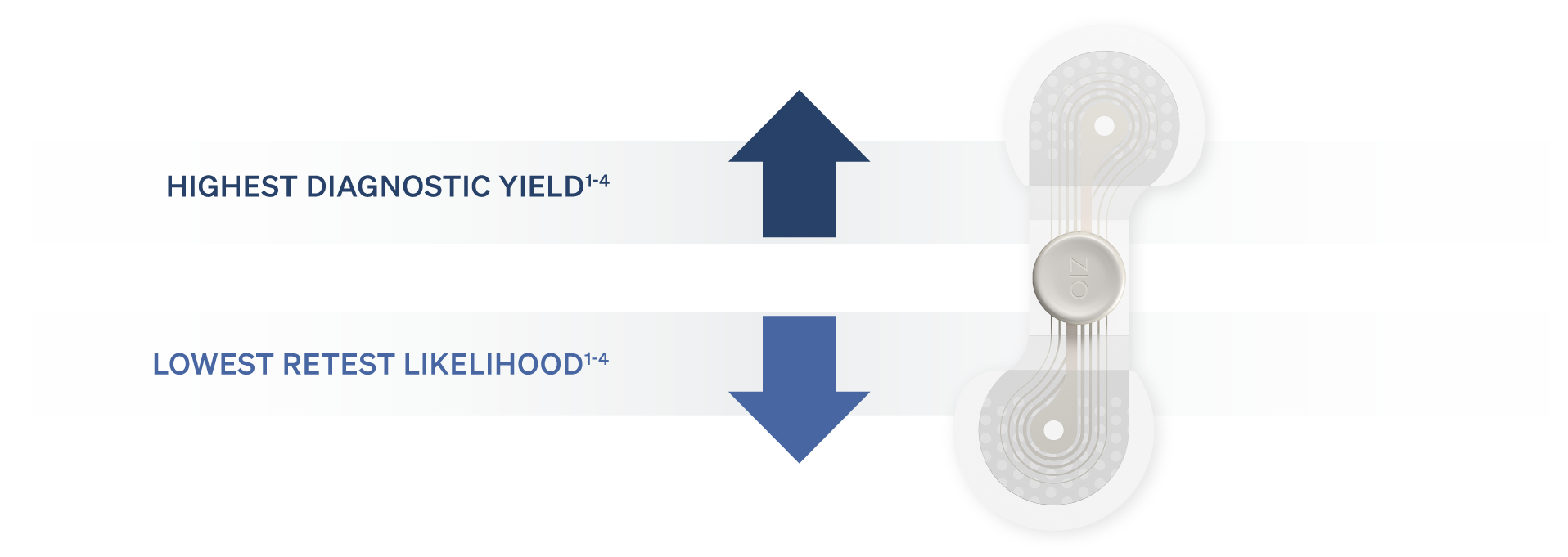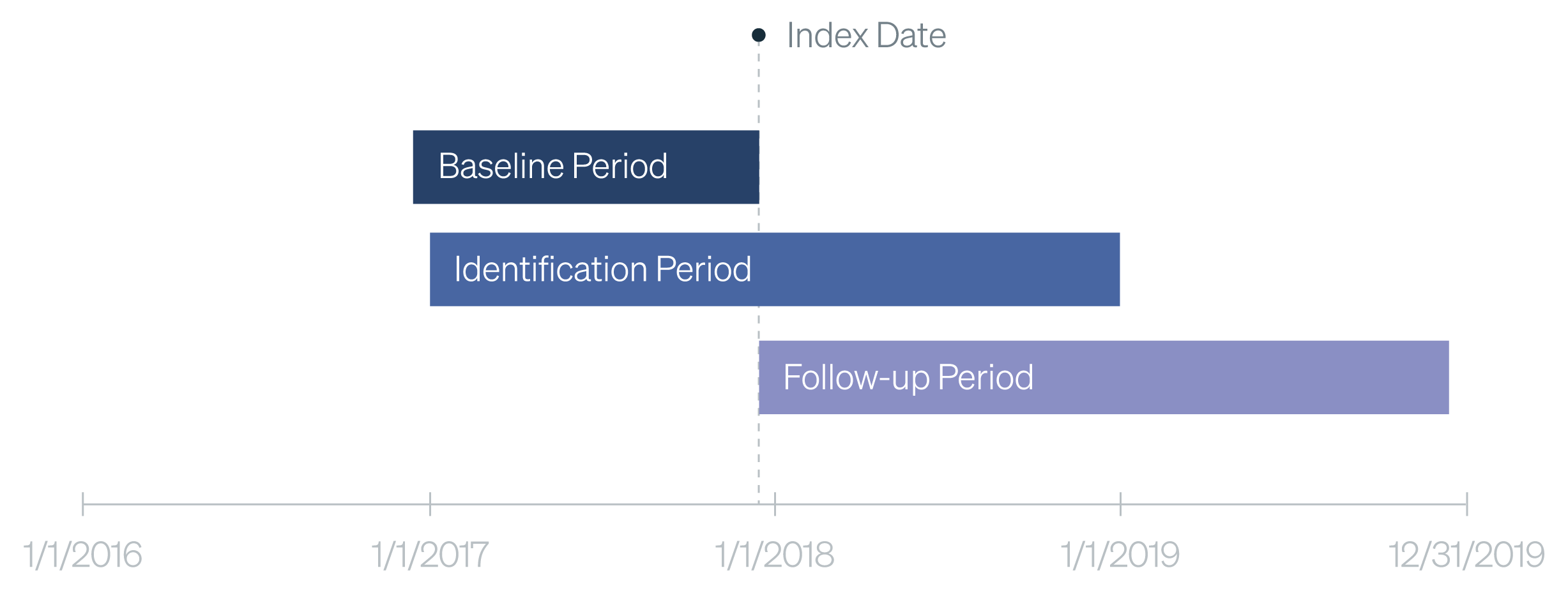Case Study
Comparative Effectiveness of Ambulatory Monitors for Arrhythmia Diagnosis
New real-world evidence.
The Cardiac Ambulatory Monitor EvaLuation of Outcomes and Time to Events (CAMELOT) study is the first of and largest of its kind and found that Zio long-term continuous monitoring (LTCM) service was associated with the highest diagnostic yield and lowest likelihood of retesting.1-5

Compared to Holter, Ambulatory Event Monitoring (AEM) and Mobile Cardiac Telemetry (MCT) monitoring services, LTCM services as a category had the lowest incremental acute care utilization.1-4
Compared with all other monitoring services, Zio LTCM service was associated with:

The first and largest retrospective claims analysis using Medicare fee-for-service documentation.1,5
The cohort included 287,789 patients.

Fill out the form to access the study.
- Reynolds et al. Comparative effectiveness and healthcare utilization for ambulatory cardiac monitoring strategies in Medicare beneficiaries. Am Heart J. 2024;269:25–34. Accessed January 2, 2024. https://doi.org/10.1016/j.ahj.2023.12.002
- In testing for specified arrhythmias defined by Hierarchical Condition Categories (HCC) 96.
- Based on previous generation Zio XT device data. Zio monitor utilizes the same operating principles and ECG algorithm. Additional data on file.
- Zio LTCM service refers to Zio XT and Zio monitor service.
- Data on file. iRhythm Technologies, 2023.
WEB0076.01